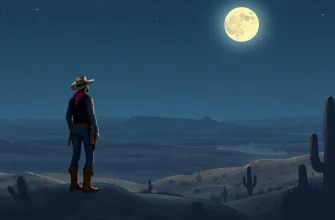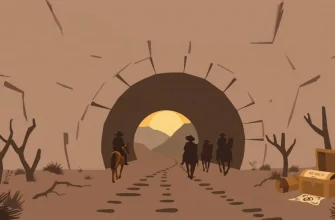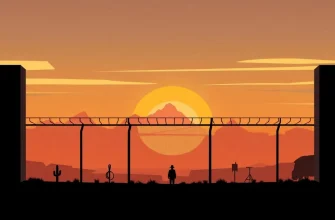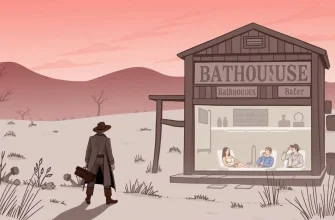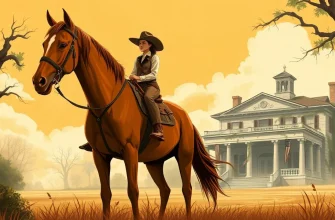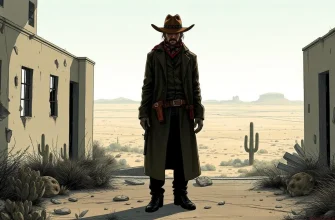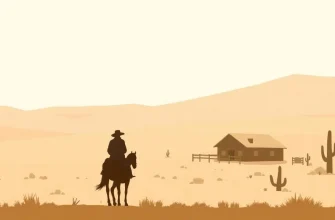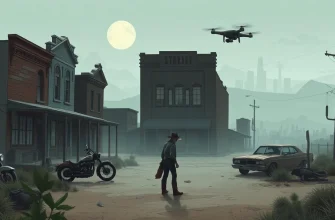The Wild West, with its rugged landscapes and lawless towns, often served as the backdrop for tales of adventure, romance, and danger. However, within this vast expanse, hotels and inns provided a unique setting for stories to unfold. This curated list dives into the heart of the West, showcasing films where hotels aren't just a place to rest but are central to the narrative. From luxurious saloons to dusty waystations, these films offer a glimpse into the lives of those who sought shelter, love, or escape within these walls. Whether you're a fan of classic Westerns or looking for something a bit different, this collection promises a cinematic journey through the West's most intriguing accommodations.

The Gunfighter (1950)
Description: Gregory Peck plays a notorious gunfighter who seeks refuge in a small town's hotel, hoping to escape his past. The hotel becomes a place of confrontation and reflection.
Fact: The film was one of the first to portray the gunfighter as a tragic figure, rather than a hero. It was also notable for its realistic portrayal of the West.
 Watch Now
Watch Now 
High Noon (1952)
Description: In this iconic Western, Marshal Will Kane (Gary Cooper) faces a moral dilemma when he learns that a dangerous outlaw he put away is coming for revenge. The entire town, including the hotel, becomes a stage for this tense showdown.
Fact: The film was shot in real-time, with the clock in the town square showing the passage of time. Also, it was one of the first Westerns to explore themes of cowardice and moral ambiguity.
 Watch Now
Watch Now 
The Magnificent Seven (1960)
Description: While the film is more about the town, the hotel plays a crucial role in the gathering of the seven gunfighters. It's where alliances are formed and plans are made.
Fact: This film was a remake of Akira Kurosawa's "Seven Samurai," adapted to a Western setting. It was also one of the first films to feature an ensemble cast of Western stars.
 Watch Now
Watch Now 
The Man Who Shot Liberty Valance (1962)
Description: This film features a pivotal scene in a hotel where Senator Stoddard (James Stewart) recounts the story of how he became known as "The Man Who Shot Liberty Valance." The hotel setting provides a backdrop for the unfolding of truth and legend.
Fact: John Wayne's character, Tom Doniphon, was initially intended to be the hero, but the script was changed to make Stewart's character the protagonist. Also, the film was shot in black and white to emphasize its timeless quality.
 Watch Now
Watch Now 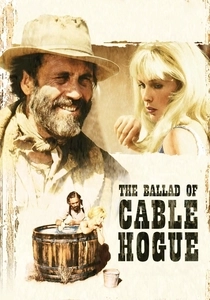
The Ballad of Cable Hogue (1970)
Description: Cable Hogue (Jason Robards) builds a waystation in the desert, which becomes a makeshift hotel. This film explores themes of redemption and entrepreneurship in the West.
Fact: Directed by Sam Peckinpah, this film was a departure from his usual violent Westerns, focusing instead on a more comedic and humanistic story.
 Watch Now
Watch Now 
The Cowboys (1972)
Description: John Wayne's character, Wil Andersen, hires a group of schoolboys to drive his cattle after his ranch hands leave. The hotel in town serves as a meeting point for the group.
Fact: This was one of the few films where Wayne's character was killed on screen, marking a departure from his usual invincible persona.
 Watch Now
Watch Now 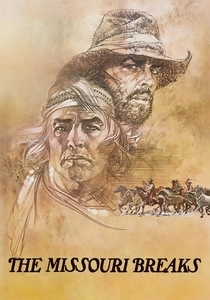
The Missouri Breaks (1976)
Description: While not strictly a hotel film, there are scenes in a hotel where the main characters, Tom Logan (Jack Nicholson) and Robert E. Lee Clayton (Marlon Brando), interact, setting up their conflict.
Fact: This was one of the few films where Marlon Brando and Jack Nicholson shared the screen, showcasing their acting prowess in a Western setting.
 Watch Now
Watch Now 
The Outlaw Josey Wales (1976)
Description: While not primarily set in a hotel, Josey Wales (Clint Eastwood) does have a memorable scene in a hotel where he confronts his enemies. This film blends Western with elements of revenge and survival.
Fact: Clint Eastwood not only starred but also directed this film, marking his first directorial effort in a Western. The film was also known for its controversial portrayal of Native Americans.
 Watch Now
Watch Now 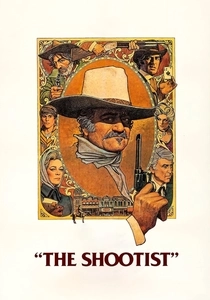
The Shootist (1976)
Description: John Wayne's final film role sees him as an aging gunfighter who checks into a hotel to live out his last days. The hotel becomes a microcosm of the West's changing times.
Fact: The film was Wayne's last before his death, and it was also the last film directed by Don Siegel. The hotel scenes were shot in Carson City, Nevada, where Wayne's character, J.B. Books, stays.
 Watch Now
Watch Now 
The Professionals (1966)
Description: Although not entirely set in a hotel, the film includes scenes where the characters meet and plan their mission in a hotel, setting the stage for their adventure.
Fact: The film was one of the first to feature a diverse cast of characters, including African American and Mexican actors in prominent roles.
 Watch Now
Watch Now 

